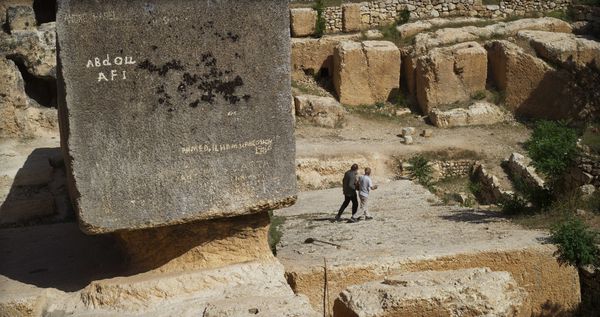Eye For Film >> Movies >> Architecton (2024) Film Review
Architecton
Reviewed by: Sunil Chauhan

Why are modern buildings so ugly? It’s a question Viktor Kossakovsky asks near the end of this visual elegy of sorts for building. He doesn’t exactly want to find out the answer – he’s more interested in the hypnotic beauty of the many processes involved in modern construction. So spellbinding are some of the shots, in fact, that even when you know the implications are ominous, its hard not to stare in complete awe (a punning alternate title for this film might be Awe-chitecton). Suggestive rather than polemic, the film is loathe to dig too deeply into that subtext however, instead resting on the kind of sensory experience Kossakovsky employed for Aquarela, his essay on water in its many forms.
In publicity for this, the director has spoken of his dismay at humanity’s remorseless love affair with concrete at the expense of other materials, but such pointed concerns are left to the viewer to deduce of their own method: until a short conversation between the director and Italian architect Michele De Lucchi near the end, the film remains opaque. Along the way to that dialogue though, Kossakovsky charts a transfixing, if wayward panoply of pregnant imagery, from rock mining, to wanton destruction.
An opening drone shot that surveys a bombed-out block of flats in Ukraine opens the film, a symbol of the waste of war, but also appearing seemingly to suggest how fragile our buildings – and by extension, the lives formed inside them - are. In another scene in Lebanon, de Lucchi visits an ancient stone megalith that still astonishes, the fact it was shaped at all inspiring a certain wonder. For as much as Architecton rues humanity’s depletion of our resources, it also marvels at our ability to harness materials for our own ends, nowhere more so than in a stunning sequence focusing on a process involving multiple explosions of a quarry that see the rock ruptured into motion.
At times, the film can cause you to wonder whether a subject as crucial as this might demand more than the prioritisation of aesthetics, beauty and cinematic purity. But as it alludes to waste, destruction, our insatiable hunger for natural materials and the shorter lifespans and functionality-over-aesthetics of much modern design, it emerges as a film that seems to want us to think about what we see when we look at buildings.
Architecton doesn’t ask what the future of architecture might be (a short journey from where it was showing at the Berlinale, in contrast, the Futurium exhibition offered multiple ideas for the future of building), only where it has been, and where it stands. But as a broad meditation on our world of cement and bricks, it presses us to think a little wider and peer a little closer when looking at our manmade structures.
Reviewed on: 05 Mar 2024















